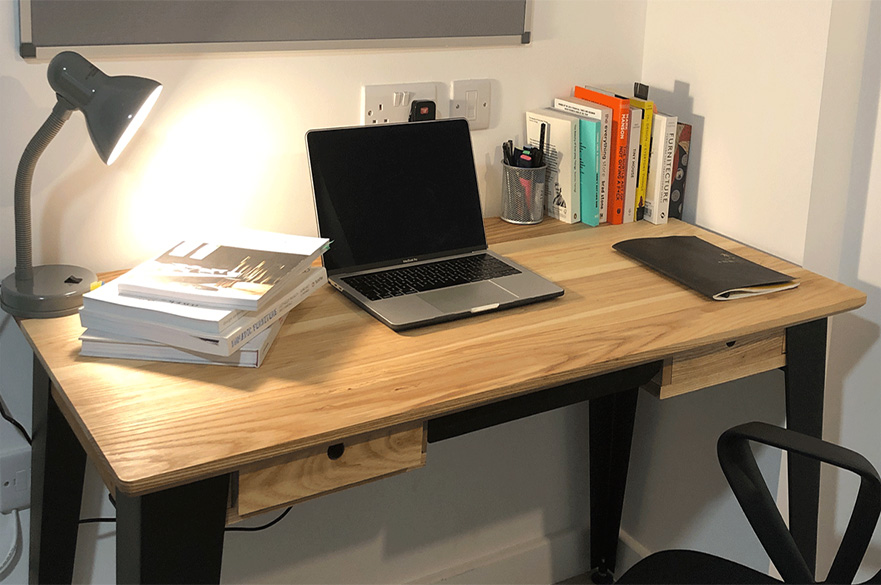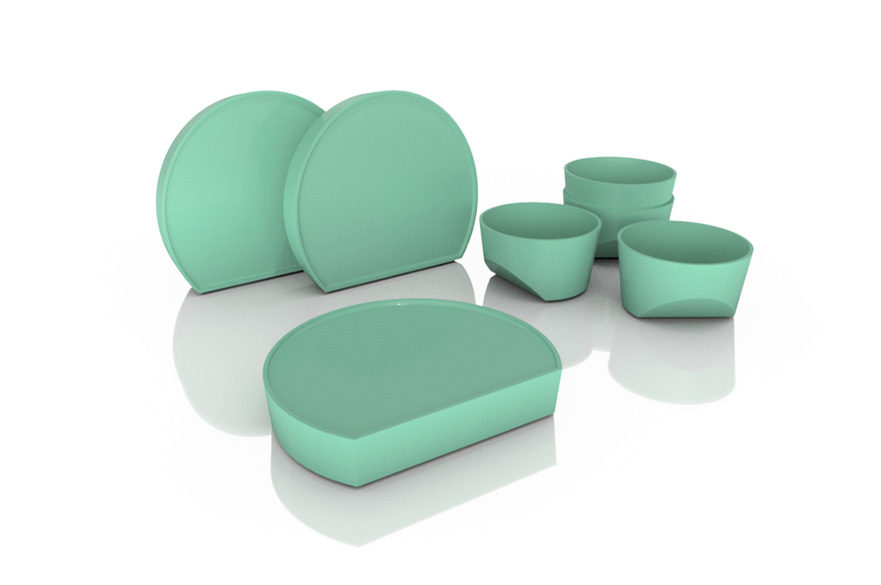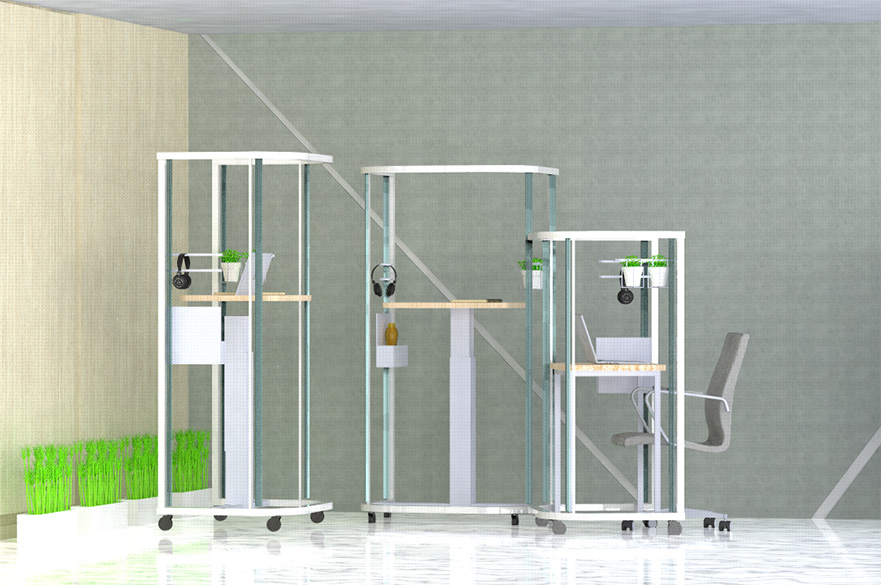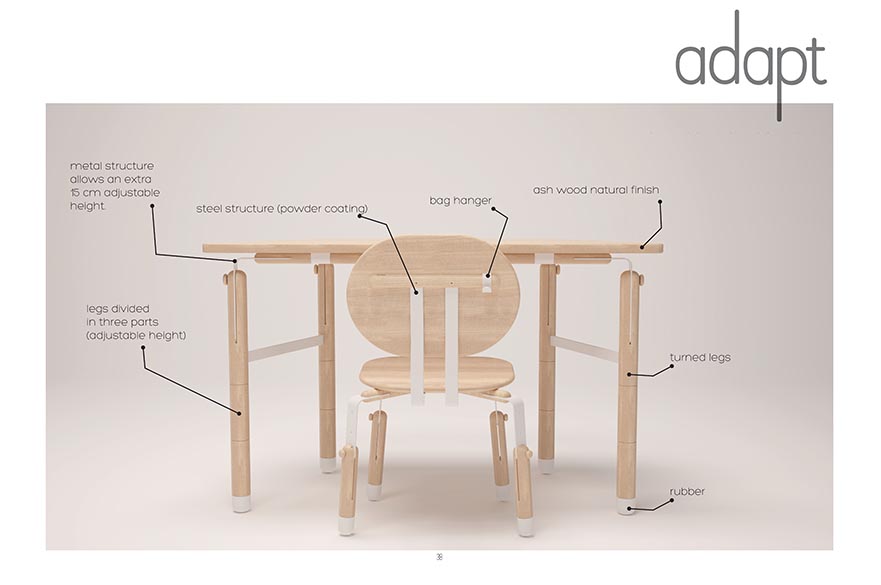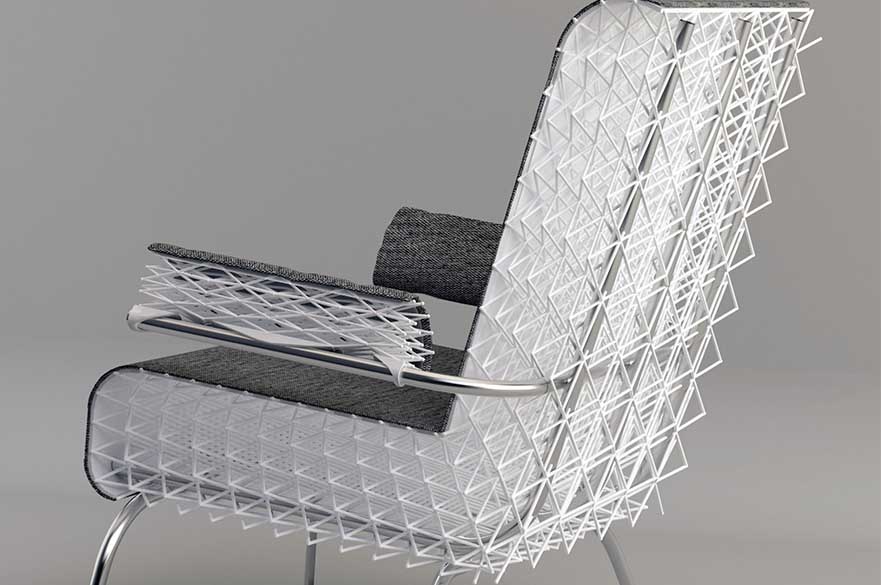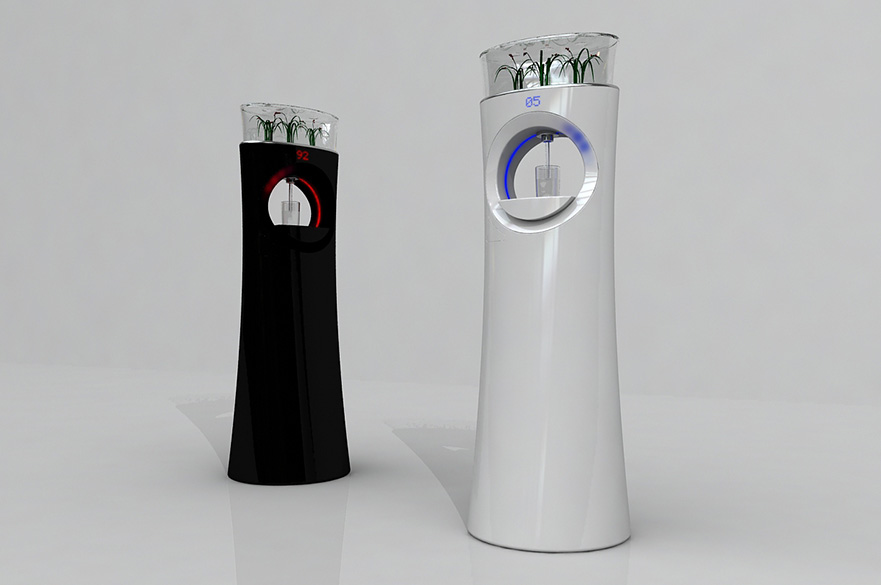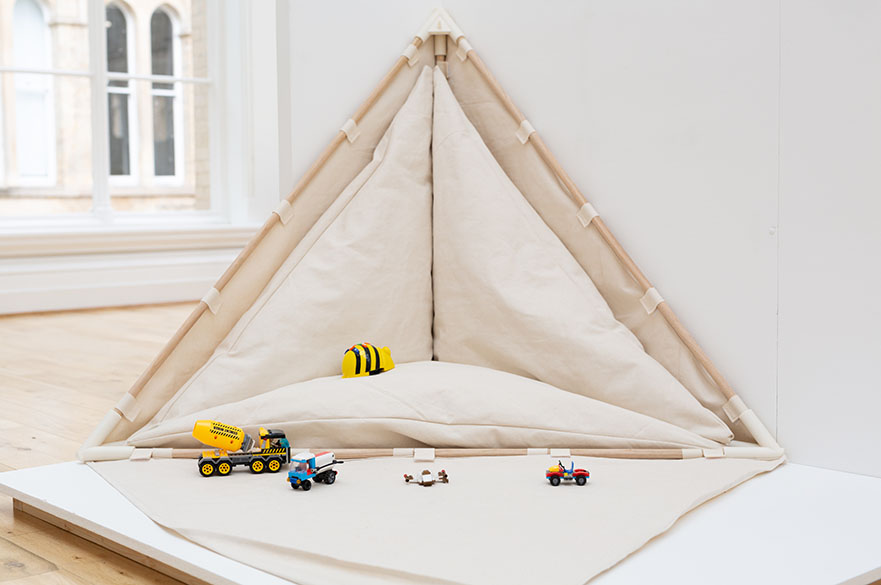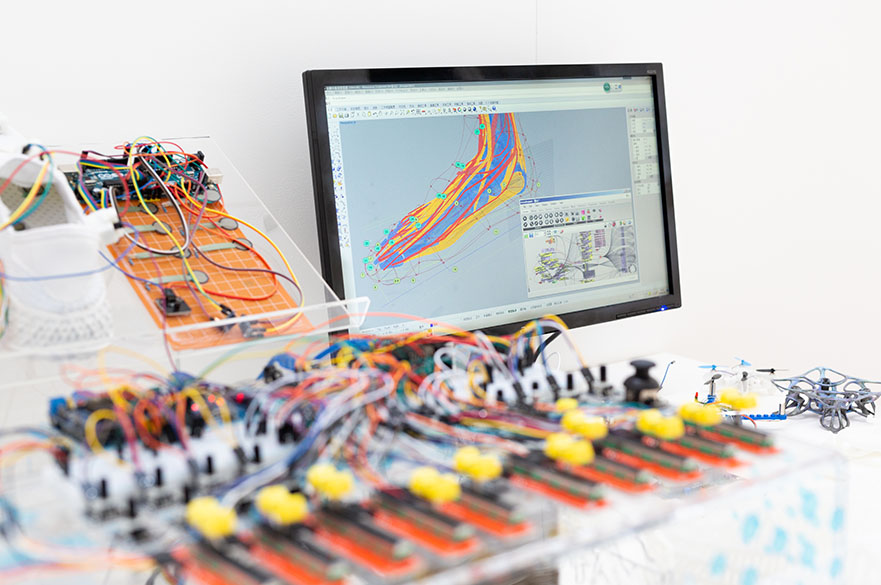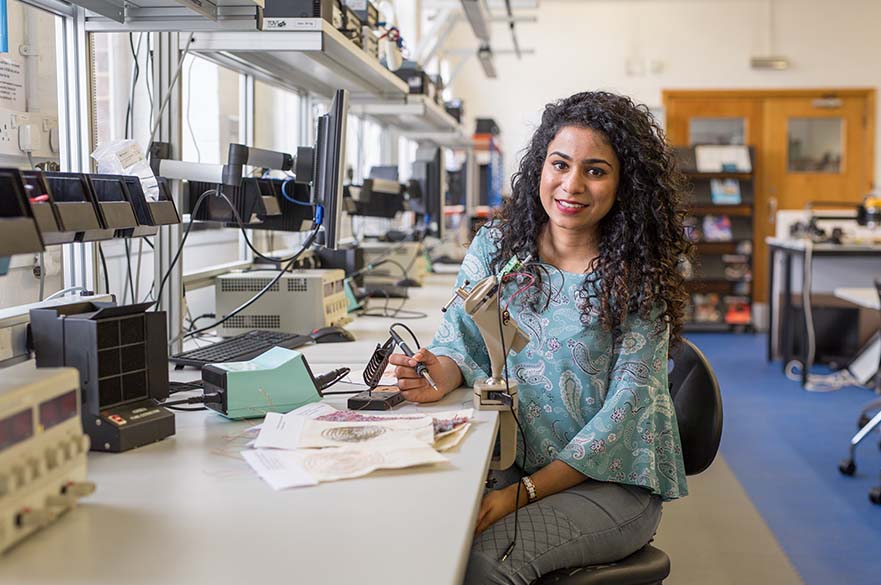Design: Products and Furniture MA
About this course
Our MA Design: Products and Furniture course is aimed at designers looking to master their approach to develop innovative products, furniture, systems or services. Underpinned by a focus on your own specialism, you’ll explore the multidisciplinary field of design, challenge the norms in design thinking and engage with the realities of designing for new and emerging markets.
You'll analyse the relationship between traditional craft skills, new technology and modern manufacture, with ideas and approaches informed by collaborative working and hands-on experience. Through contemporary research and industry-applied projects and briefs, you’ll consider the importance of materials and manufacturing, and develop the strategies needed to explore and understand markets, social needs and end users.
Who is this course designed for?
This course is aimed at design professionals or graduates with a design-related honours degree. The course, and the associated support provided by the University, will enable graduates to develop advanced design, technological and manufacturing skills.
These advanced skills will aid students looking to start their own businesses, obtain work within the manufacturing industry, design consultancies, research and development organisations, or move on to further study by engaging in research.
Visit our Product Design Masters Showcase, an online exhibition celebrating the work of our graduating MA and MSc students.
-
By enrolling in this programme, you'll gain complimentary student membership of CSD (Chartered Society of Designers) for the duration of your studies. This is the first step in a professional design career offering graduates exemptions in the application process, timescale and costs in achieving ‘Chartered Designer’ status.
-
2nd most sustainable university in the world (UI GreenMetric World University Rankings 2024).
-
Expand your networks and get noticed by showcasing your work at our Art and Design Degree Show and Postgraduate Design Exhibition — attended by design professionals, industry experts and potential employers.
-
Benefit from the industry-standard facilities at our City Campus. You'll be supported by a team of expert technicians and have access to machining and manufacturing workshops, laboratories, modern CAD/CAM studios, and a dedicated studio space for Masters students.
Main image: Work by Caterina Fratino
What you’ll study
With a strong studio-based culture, our course considers the relationship between traditional craft skills, new technology and modern manufacture, and encourages collaborative working and hands-on experience. You’ll be given the tools to understand market, social needs and end users, developing into an advanced and aware designer, specialising in existing or emerging areas of product design.
Course structure
The course is formed of four core modules; three of which are worth 20 credit points. You will also study a 120 credit Major Study Project, which will run throughout the year/two years on the part-time route. This is split into three elements which are assessed at the end of each term. You’ll also have the opportunity to take part in a public exhibition at the NTU Degree Show, at the end of Term 2.
You'll study the three 20 credit point modules alongside students from the MSc Design: Products and Technology course, offering opportunities to share ideas and expertise across the subject group.
Course overview
Full-time route:
| Term 1 (15 weeks) | Term 2 (15 weeks) | Term 3 (15 weeks) |
|---|---|---|
Design Research Methods | Professional Collaboration (20 credits) | Products and Furniture: Major Study Project Element 3: Realisation and Evaluation Core (part of 120 credit module) |
| Design Tools (20 credits) | Products and Furniture: Major Study Project Element 2: Design and Development Core (part of 120 credit module) | |
| Products and Furniture: Major Study Project Element 1: Context and Rationale Core (part of 120 credit module) |
Part-time route:
| Year 1 | Year 2 | ||||
|---|---|---|---|---|---|
|
Term 1 (15 weeks) |
Term 2 (15 weeks) |
Term 3 (15 weeks) |
Term 1 (15 weeks) |
Term 2 (15 weeks) |
Term 3 (15 weeks) |
Design Research Methods (20 credits) | Professional Collaboration (20 credits) | Products and Furniture: Major Study Project Element 2: Design and Development Core | Products and Furniture: Major Study Project Element 3: Realisation and Evaluation Core (part of 120 credit module) | ||
| Products and Furniture: Major Study Project Element 1: Context and Rationale Core (part of 120 credit module) | - | Design Tools (20 credits) | |||
Design Research Methods
20 credit points
- This module will provide students with the research methodologies, languages, methods, knowledge and skills necessary in building contemporary arts, design, manufacturing and technology-related practices.
- Working in small groups you'll complete a research project in consultation with your supervisor, identifying your aims and objectives within the framework of their course and beyond.
- You'll engage with a range of quantitative and qualitative research methods, and evaluate primary and secondary methods with reference to design issues.
- You'll learn to critically appraise theoretical and experimental methods of research in your chosen field of interest and apply them in your practice, and reflect on the relationship between theory and practice.
Design Tools
20 credit points
- This module will provide you with the necessary practical skills and knowledge to devise creative design solutions at an advanced level.
- You'll undertake a series of exploratory workshops to become familiarised with the facilities and staff at the university, and to develop an awareness of the potential for emerging materials and technologies relating to their design interests.
- You'll generate ideas for new products and develop and evaluate a range of new solutions, communicate ideas, concepts, plans and designs, using a variety of approaches including written, oral, graphic illustrations and computer-based presentations.
- You'll consider different elements of your individual design interests through studio and reflective practice, skills such as drawing, and prototyping as well as investigations to materials such as wood, metal, plastics, ceramics, composites and sustainable materials, and fourth-generation development platforms, computer aided design and additive manufacturing.
Professional Collaboration
20 credit points
- Working as a member of a small team, the Professional Collaboration module will provide challenging simulated work environments, to enable you to engage in the design and management of real-world design projects with industrial partners.
- You'll choose from a range of problem-based scenarios and benefit from working with others on innovative projects set in the context of contemporary real-world issues, and find solutions to difficult and complex challenges.
- You'll be challenged to define the value in a design proposal, and to develop it into a viable commercial proposition, informed by current developments in design management, venture funding, manufacturing technologies, intellectual property (IP), open innovation, and brand management.
Major Study Project
120 credit points
- This module provides you with the opportunity to develop innovative artefacts, products or systems. You'll work on your own design concept, an industrially-led, or research-based project as individually negotiated through your learning agreement.
- Projects may be based on developing innovative products, furniture, systems and services. Projects should consider not only materials and manufacturing, but also a broad range of strategies and approaches driven by user-centred, market-driven, sustainable, ethical, technological or critical methodologies.
- The first element of this module is called context and rationale. The main aims of this phase are to enable you to employ appropriate methods of creative research, and apply them to the development of effective design strategies for a negotiated Masters Project.
- In the second element, design and development you'll progress your project by applying research methods and creative concept generation and ideas prototyping to the development and testing of a range of possible design outcomes for your project.
- In the final element of the Major Study Project, realisation and evaluation, you'll realise the outcome of your design project through the development of manufactured artifacts, detailed prototypes and/or digital simulations, which will enable effective testing and evaluation of the project outcome, and successfully communicate the product, system or service to all stakeholders in the project.
We regularly review and update our course content based on student and employer feedback, ensuring that all of our courses remain current and relevant. This may result in changes to module content or module availability in future years.
Don’t just take our word for it, hear from our students themselves
Student Work
Video Gallery
How you're taught
How will I learn?
Learning and teaching will comprise of lectures to introduce and develop concepts, and to explore the application of these concepts. Studio work, workshops and laboratory sessions will develop your skills.
Seminars and tutorials will provide you with academic support, and case studies and project work will be used to develop your understanding of concepts and applications.
You’ll also be expected to take part in project presentations to develop your confidence and identity in professional practice.
NTU is 6th for the number of postgraduate taught students studying Design studies (HESA, 2021/22).
Showcase of student work
Our postgraduate students produce a website to showcase their final year projects and the live briefs they complete on the course. Head over to our Product Design Masters website to find out more about the different directions they've taken their work.
Study trips
Field trips and study visits are an important part of your learning. Trips may include site visits and visits to practices, museums, exhibitions and events. Where a trip is mandatory it will be aligned to your modules and inform project work, and substantive costs – including travel and accommodation – will be paid for by the school.
Optional trips may also be organised which can provide additional opportunities to enhance your knowledge and experience. Optional trips will incur an additional cost of approximately £500 for participating students.
A valid passport and any associated visas will be required for trips outside of the UK.
How you're assessed
Your progress on the course is assessed by 100% coursework, working to tasks and briefs.
Careers and employability
Where do MA Design: Products and Furniture graduates from NTU work?
This course has been developed to meet the needs of industry in the UK and overseas. It is specifically designed to increase your employability in a business context by identifying new services, strategies and product opportunities, and conducting projects in collaboration with industrial partners. You'll become more strategically aware and technically literate, and will communicate concepts and outcomes at an advanced level in an ever-changing global market place.
On completion, you will have acquired a set of skills, knowledge and experience to enable you to set up your own business, to work in manufacturing industries, design consultancies, and research and development organisations, or to progress to PhD study by engaging in further research.
Our Employability team
Our expert Employability team will work closely with you at every stage of your career planning, providing personal support and advice. You can benefit from this service at any time during your studies, and for up to three years after completing your course.
NTU Enterprise
You'll also have the opportunity to turn your ideas into a viable business with help from NTU Enterprise, NTU's purpose-built Centre for Entrepreneurship and Enterprise, a support centre to help students create, develop and grow their own businesses.
Re:search Re:imagined
To us, research is about more than writing papers and proposing new ideas. By daring to think differently, we’re disrupting the research landscape and finding the answers to the questions that really matter. From sustainable technologies to revolutionary medical products, we’re inspiring the brightest minds to rise up and find solutions to some of the most significant global challenges facing society.
Find out more: ntu.ac.uk/research
Campus and facilities
Studio space
Our Arkwright building is home to several unique creative studio spaces. Our dedicated space for postgraduate product design students is where you'll collaborate, undertake group and individual work, sketch, develop projects and soft modelling, and have presentations and critique sessions. Fitted with desk space and computers with all the software you need, you'll be well equipped and supported by our academic and technical teams.
Workshops and laboratories
Our Maudslay building boasts a number of industry-standard workshops and facilities. Supported by a team of expert technical staff, we offer woodwork and metal workshops, model making studios, structural testing equipment, concrete, soil and materials laboratories.
Entry requirements
UK students
Academic entry requirements: 2.2 honours degree in an art and design-related subject.
Other requirements: A digital portfolio
Additional requirements for UK students
There are no additional requirements for this course.
Other qualifications and experience
We welcome applications from students with non-standard qualifications and learning backgrounds and work experience. We consider credit transfer, vocational and professional qualifications, and any work or life experience you may have.
You can view our Recognition of Prior Learning and Credit Transfer Policy which outlines the process and options available, such as recognising experiential learning and credit transfer.
Getting in touch
If you need more help or information, get in touch through our enquiry form.
International students
Academic entry requirements: 2.2 honours degree in an art and design-related subject.
We accept equivalent qualifications from all over the world. Please check your international qualifications on our international entry requirements page.
Other requirements: A digital portfolio
English language requirements: See our English language requirements page for requirements for your subject and information on alternative tests and Pre-sessional English.
Additional requirements for international students
There are no additional requirements for this course.
English language requirements
View our English language requirements for all courses, including alternative English language tests and country qualifications accepted by the University.
If you need help achieving the language requirements, we offer a Pre-Sessional English for Academic Purposes course on our City campus which is an intensive preparation course for academic study at NTU.
Other qualifications and experience
We welcome applications from students with non-standard qualifications and learning backgrounds and work experience. We consider credit transfer, vocational and professional qualifications, and any work or life experience you may have.
You can view our Recognition of Prior Learning and Credit Transfer Policy which outlines the process and options available, such as recognising experiential learning and credit transfer.
Sign up for emails
Sign up to receive regular emails from the International Office. You'll hear about our news, scholarships and any upcoming events in your country with our expert regional teams.
Getting in touch
If you need advice about studying at NTU as an international student or how to apply, our international webpages are a great place to start. If you have any questions about your study options, your international qualifications, experience, grades or other results, please get in touch through our enquiry form. Our international teams are highly experienced in answering queries from students all over the world.
Policies
We strive to make our admissions procedures as fair and clear as possible. To find out more about how we make offers, visit our admissions policies page.
